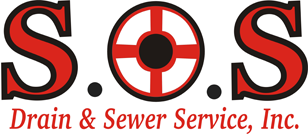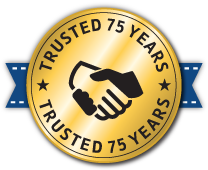Sewer lines are an essential part of our home’s plumbing system, responsible for carrying wastewater away from our homes. A minor clog in the sewer line can cause inconvenience and unpleasant odors, but many homeowners tend to ignore these small issues, thinking they will resolve on their own. However, ignoring minor clogs can lead to more significant problems over time.
In this article, we will discuss the reasons why ignoring minor clogs can lead to major sewer line issues. We will also explore the signs of a clogged sewer line and provide tips on how to prevent clogging in the future. It is essential for homeowners to understand the importance of maintaining their sewer lines and taking immediate action when noticing any signs of clogging to avoid costly repairs and potential health hazards.
What is Issues in the Sewer Line
Sewer lines are designed to transport wastewater from our homes to the main sewage system. Any blockages or damage in the sewer line can lead to issues with this process, causing backups and clogs. Clogged sewer lines can result in toilets not flushing correctly, slow draining sinks and showers, and even foul smells emanating from drains.
Ignoring minor clogs can lead to these issues becoming worse over time. As the blockage continues to grow, it can cause damage to the sewer line, leading to leaks and even complete pipe collapse. This can result in costly repairs and potential health hazards if raw sewage starts backing up into your home.
It is crucial to address any sewer line issues promptly to prevent them from escalating into more significant problems.
How Ignoring Minor Clogs Causes Major Sewer Line Issues
Ignoring minor clogs in your sewer line can lead to major issues because the blockages will continue to grow and become more challenging to remove. Here are some of the reasons why ignoring minor clogs can cause major sewer line issues:
Worsening Clog
When a clog occurs in the sewer line, it typically starts as a small obstruction caused by debris, hair, and other materials. These minor blockages can be easily removed with DIY methods or by calling a drain cleaner. However, if left unattended, these clogs will continue to grow as more waste and debris get caught on the initial blockage.
As the clog grows, it becomes harder to remove, and traditional DIY methods may no longer be effective. The blockage can also start to affect multiple areas of the sewer line, causing backups and clogs in different parts of your home’s plumbing system.
Pipe Damage
Ignoring minor clogs can also lead to damage in your sewer line pipes. As the blockage continues to grow, it can create pressure on the pipes, causing them to crack or even collapse. This can lead to leaks and sewage backups in your home, which pose health hazards and require costly repairs.
In some cases, the damage to the pipes may be severe enough that they need to be replaced entirely, resulting in an even more expensive repair.
Health Hazards
Clogged sewer lines can cause raw sewage to back up into your home, creating a potential health hazard for you and your family. Raw sewage contains harmful bacteria and viruses that can cause illnesses if exposed to humans.
Ignoring minor clogs can lead to these backups becoming more frequent, which increases the risk of exposure to raw sewage. It is essential to address sewer line issues promptly to avoid any potential health hazards.
Expensive Repairs
Ignoring minor clogs in your sewer line can also lead to expensive repairs in the future. As mentioned, the blockage and damage can create costly problems that require professional help to fix. Additionally, frequent backups and clogs can cause wear and tear on your plumbing system, leading to a shorter lifespan for your pipes and other components. This means that you may have to replace your entire plumbing system sooner than expected, resulting in significant expenses.
Plus, if raw sewage backs up into your home, you may need to hire professional cleaning services to sanitize and restore your living space. Overall, ignoring minor clogs can lead to expensive repairs and potential health hazards that could have been avoided by addressing the issue early on.
How To Prevent Clogging in Your Sewer Line
Prevention is always better than cure, and this saying holds true for sewer line issues. Here are some tips to help you prevent clogging in your sewer line:
- Avoid Flushing Inappropriate Items: Only flush toilet paper down the toilet, and avoid flushing items like wipes, feminine hygiene products, and paper towels.
- Proper Disposal of Grease: Do not pour grease down the sink, as it can solidify and cause clogs in your sewer line. Instead, dispose of it in a separate container.
- Regular Maintenance: Schedule regular inspections and maintenance with a professional drain cleaner to catch any minor clogs or issues early on.
- Install Drain Strainers: These small devices can help prevent debris and hair from entering your drains and causing clogs.
- Be Mindful of Tree Roots: If you have trees on your property, be mindful of their roots growing towards your sewer line. Regularly trim or remove any tree roots that may pose a threat to your pipes.
- Use Enzyme Cleaners: These natural cleaners can help break down organic materials in your pipes, preventing them from building up and causing clogs.
By following these tips, you can significantly reduce the likelihood of experiencing clogged sewer lines and avoid the potential consequences of ignoring minor clogs.
Does Homeowner’s Insurance Cover Sewer Line Issues?
Homeowner’s insurance typically covers sudden and accidental damage to your property, including sewer line issues. However, it usually does not cover regular wear and tear or neglect of maintenance in your plumbing system.
If a clog or damage occurs due to natural disasters like earthquakes or floods, homeowner’s insurance may not cover the repairs unless you have additional coverage specifically for those events.
It is essential to review your homeowner’s insurance policy and talk to your insurance provider about what is covered in terms of sewer line issues. Some policies may have specific exclusions or limitations, so it is vital to understand what type of coverage you have.
Additionally, some insurance companies offer optional coverage add-ons for things like sewer backups and clogs. These can provide additional protection and financial assistance in case of a sewer line issue.
Plus, if you are planning on purchasing a new home, it is crucial to have the sewer line inspected before finalizing the sale. This can help identify any potential issues and ensure that they are not excluded from your homeowner’s insurance coverage.
How much Does it Cost to Repair a Sewer Line?
The cost of repairing a sewer line can vary depending on the severity of the issue and the location of the problem. On average, homeowners can expect to pay anywhere from $1,100 to $4,000 for basic repairs. However, if major damage or replacements are needed, this cost can increase significantly, ranging from $4,000 to $25,000 or more.
Some factors that can affect the cost of sewer line repairs include:
- Location of the Issue: If the problem is in a hard-to-reach location or under concrete or landscaping, it may require additional time and resources to fix.
- Type of Pipe Material: Different types of pipes require different repair methods, which can affect the cost. For example, replacing clay pipes may be more expensive than PVC or cast iron.
- Length of the Sewer Line: The longer your sewer line is, the more costly it will be to repair or replace.
- Time and Labor: If the issue occurs during off-hours or requires extensive labor, it can increase the overall cost of the repair.
- Additional Damage: Sometimes, a clogged sewer line can cause damage to your property or other components of your plumbing system. These additional repairs can drive up the cost of fixing your sewer line.
It is essential to get quotes from multiple professional drain cleaners before deciding on a course of action for your sewer line issues. Additionally, regular maintenance and addressing minor clogs early on can help prevent costly repairs in the future.
Contact S.O.S Drain & Sewer Services For All Your Drain and Sewer Cleaning Needs
S.O.S Drain & Sewer Services is a trusted family-owned and operated business that has been serving commercial and residential clients in Minneapolis, St. Paul, and the entire Twin Cities area since 1941. Our experienced technicians are highly trained to provide quick, clean, and on-time services while prioritizing safety at the job site.
We offer upfront pricing with no hidden costs or surprise fees and strive to provide efficient services to keep your drains and sewers operating smoothly, avoiding expensive repairs in the future. Due to our dedication to customer satisfaction and trust, we have a high percentage of repeat customers who also refer us to their friends and family members.
Our technicians are constantly trained on the latest techniques and equipment for drain and sewer cleaning, ensuring that we can handle any job, big or small. We are available 24/7 to better serve our customers and provide a high-quality professional service at an affordable price.
Contact us today for a free estimate or on-site consultation by calling (612) 475-0455, or messaging us through our website.
FAQs
Can ignoring slow drains lead to a main sewer line clog?
Yes, ignoring slow drains can be an early sign of a clogged main sewer line. When multiple drains in your home are draining slowly, it may indicate a sewer drain clog affecting the main sewer line. Regular drain cleaning can help prevent such issues from escalating into more significant sewer line problems.
What are the risks of not addressing standing water in drains?
Standing water in your drains often suggests a clogged drain or a more severe sewer line clog. If not promptly addressed, this can lead to damaged sewer lines due to increased pressure and potential backups. Using tools like a drain snake can help clear the clogs and restore proper flow to prevent further damage.
How do multiple slow drains indicate potential sewer line problems?
When you experience slow draining in multiple areas of your home, it’s a strong indicator of a clogged main sewer line. This situation suggests that the issue is located in the main sewer line rather than in individual secondary pipes. Ignoring these signs can lead to severe sewer line problems, including extensive damage to the entire sewer system.
What should I do if I smell foul odors coming from my drains?
Foul odors emanating from drains are a common symptom of sewer line issues, such as a sewer drain clog. These odors indicate decaying waste material that isn’t adequately flushed out due to a blockage. It’s crucial to address these smells promptly with professional drain cleaning services to prevent health hazards and further complications in the sewer system.








